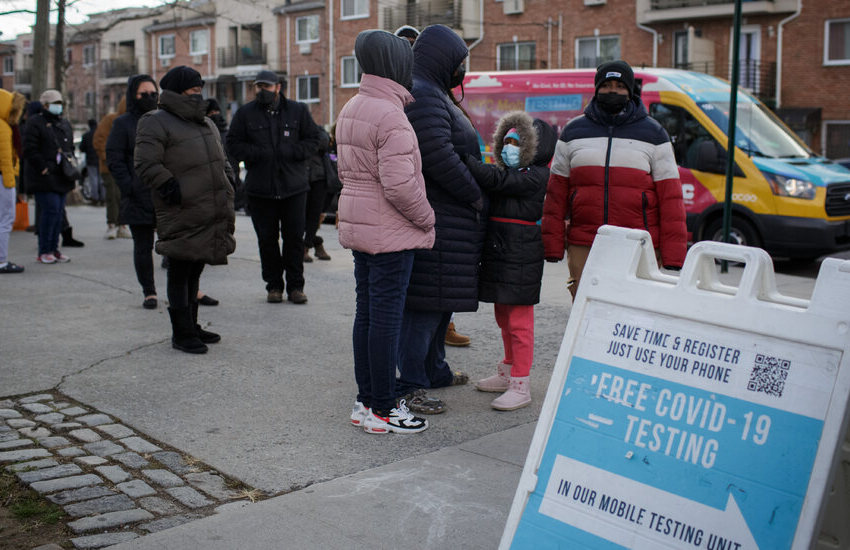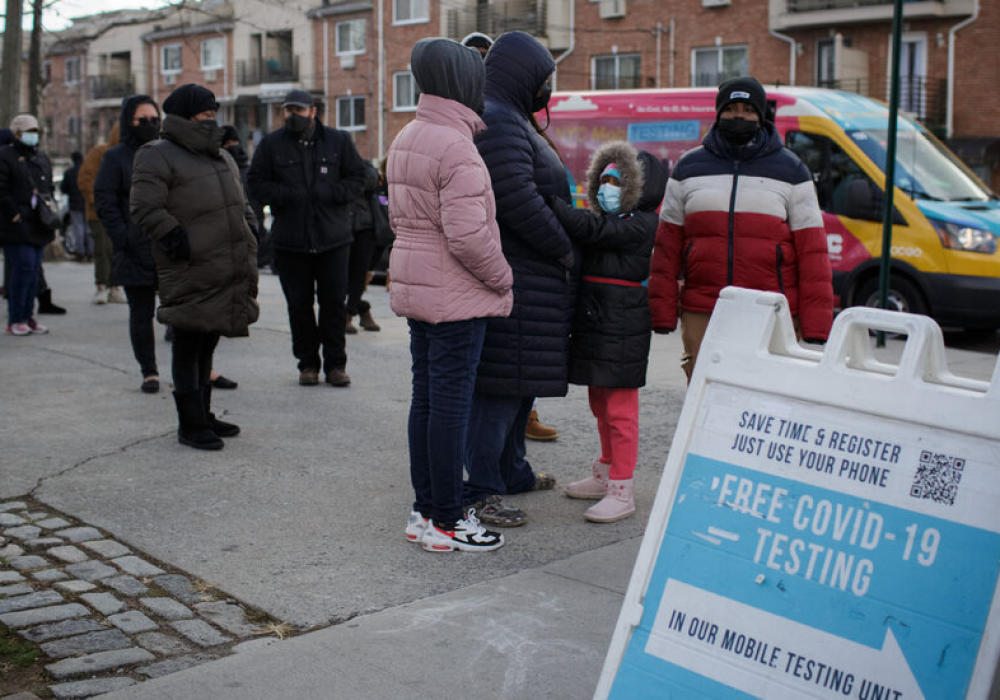The Centers for Disease Control and Prevention on Monday shortened by half the isolation period for people who contract the coronavirus, saying that just five days after their positive test results those without symptoms could safely resume mixing with others.
That replaced previous guidance from the agency that infected patients isolate for 10 days. The agency cited growing evidence that the virus is most contagious in the two days before and three days after symptoms develop. People with symptoms after five days are encouraged to remain at home.
The new guidance was announced as the highly transmissible Omicron variant is sending daily caseloads soaring, forcing airlines to cancel thousands of flights and cities to scuttle or scale back New Year’s Eve celebrations and threatening industries as diverse as health care, restaurants and retail.
“The Omicron variant is spreading quickly and has the potential to impact all facets of our society,” said Dr. Rochelle Walensky, the director of the C.D.C. The new recommendations “balance what we know about the spread of the virus and the protection provided by vaccination and booster doses. These updates ensure people can safely continue their daily lives.”
Health officials also said that uninfected Americans who had received booster shots did not need to quarantine after exposure to the virus.
The C.D.C. has been criticized for shifting guidance and mixed messaging. Last week, the agency recommended that health care workers who are asymptomatic return to work after just seven days and a negative test, adding that “isolation time can be cut further if there are staffing shortages.”
States, cities and employers can choose whether to follow the C.D.C.’s guidance. In New York State, which has reported record levels of cases and surging hospitalizations, major hospitals recently changed isolation protocols for vaccinated employees.
Some places are reporting their worst caseloads of pandemic. Delaware, Hawaii, Massachusetts, New Jersey, New York and Puerto Rico have reported more coronavirus cases in the past week than in any other seven-day period, data show.
The numbers point to the ease with which Omicron is spreading across the United States, even as some studies from overseas suggest that the variant might cause less severe illness. Experts warn that the surge of infections, combined with the fact that tens of millions of Americans remain unvaccinated, could still create a severe strain on the U.S. health system and lead to many more deaths.
On Sunday, the seven-day national average of new daily cases surpassed 214,000, an 83 percent jump over the past 14 days. Deaths also increased by 3 percent to a seven-day average of 1,328, according to a New York Times database. Holiday interruptions to data reporting may have affected those daily case totals.
The national record for average daily cases is 251,232, set in January during a post-holiday surge.
Hospitalizations are up, too, although not as much as cases. Nearly 72,000 Americans are hospitalized with Covid-19, an 8 percent increase over two weeks but still just over half of peak levels.
From Dec. 5, there has been a fourfold increase of Covid hospital admissions among children in New York City, where the new variant is spreading rapidly, the New York State Department of Health said in an advisory. About half were under 5, and not eligible for vaccination.
The Coronavirus Pandemic: Key Things to Know
Elective surgeries were put on pause at many hospitals after New York’s governor, Kathy Hochul, declared a state of emergency this month.
Government data show that vaccination is still a strong protector against severe illness from Omicron.
Still, only 62 percent of Americans are fully vaccinated, and the nation’s medical infrastructure is dangerously frayed two years into the pandemic as hospitals contend with staff shortages fueled by burnout and early retirements. Speaking on ABC’s “This Week” on Sunday, Dr. Anthony S. Fauci, the government’s top infectious-disease expert, said: “When you have such a high volume of new infections, it might override a real diminution in severity.”
Data out of South Africa and some European countries suggest that Omicron infections have been milder and are producing fewer hospitalizations. But experts warn that might not be true everywhere, adding that the surge in cases may still flood hospitals in many countries.













